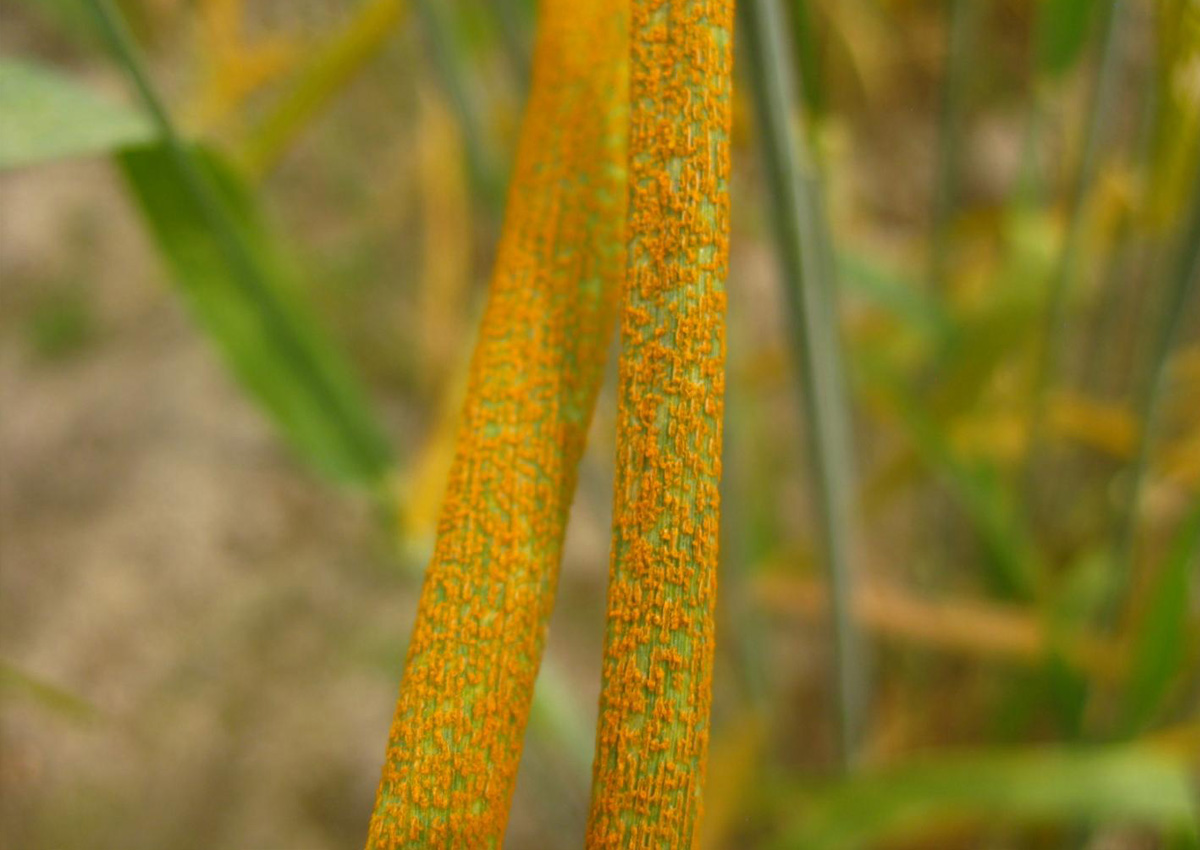
10 New Genes Identified for Resistance to Stripe Rust Disease
September 23, 2020| |
Stripe rust, one of the most destructive diseases of wheat, affects the production of the crop worldwide, especially in the United States. The disease can be controlled by chemicals, but these are deemed harmful to humans, animals, and the environment. Application of such chemicals is also very costly, and farmers prefer to grow wheat varieties that resist stripe rust and the development of such varieties is a top priority for wheat breeding programs.
To help develop such varieties, scientists from the US Department of Agriculture - Agricultural Research Service (USDA-ARS) and Washington State University studied stripe rust resistance genes in 616 spring wheat varieties using the genome-wide association study approach. They used the GMS platform recently developed by the USDA-ARS Wheat Health, Genetics, and Quality Research Unit.
Dr. Xianming Chen, a research plant pathologist at Washington State University and research geneticist at the USDA-ARS said they tested the wheat varieties with five predominant strains of the wheat stripe rust pathogen under controlled greenhouse conditions and in field locations under natural infection of the pathogen. They were able to identify 37 genes, including 10 new genes, that show resistance to stripe rust.
For more details, read the open-access paper in the August 2020 edition of Plant Disease.
| |
You might also like:
- Scientists Isolate First Major Resistance Genes Against Wheat Stripe Rust Disease
- Researchers Turn to Molecular Markers to Improve Wheat
- Scientists Report Growing Threat of Wheat Rust in Vulnerable Nations Worldwide
Biotech Updates is a weekly newsletter of ISAAA, a not-for-profit organization. It is distributed for free to over 22,000 subscribers worldwide to inform them about the key developments in biosciences, especially in biotechnology. Your support will help us in our mission to feed the world with knowledge. You can help by donating as little as $10.
-
See more articles:
-
News from Around the World
- FAO Facilitates Agri-food Systems Transformation of Cities Worldwide
- Ugandan Farmers Want Bt Maize to Address Fall Armyworm Challenge
- 10 New Genes Identified for Resistance to Stripe Rust Disease
- Research Team Turns to Wild Crop Relatives in Climate Change Battle
- Scientists Identify New Resistance Gene to Potato Disease that Caused Irish Famine
- Bt Cotton Increased Farmers' Produce by 10-Fold in China
-
Research Highlights
- E. coli Bacteria Offer a Path to Improving Photosynthesis
- Scientists Analyze Whole Genome Sequence of Water Buffalo, Cattle for Domestication Signatures
-
Plant
- CRISPR-Cas9 Reveals Genes Involved in Rice Heading Date
- Transgene-free PDS Mutants in Potato Generated
- TALENs Used for Genome Editing of an Algal Biodiesel Candidate
-
Health
- Research Highlights COVID-19 Impacts on Food Security in Kenya and Uganda
-
Read the latest: - Biotech Updates (January 21, 2026)
- Gene Editing Supplement (December 17, 2025)
- Gene Drive Supplement (February 22, 2023)
-
Subscribe to BU: - Share
- Tweet

